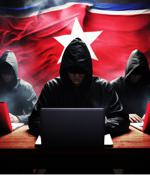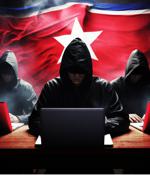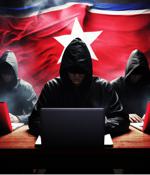Security News

Your profile can be used to present content that appears more relevant based on your possible interests, such as by adapting the order in which content is shown to you, so that it is even easier for you to find content that matches your interests. Content presented to you on this service can be based on your content personalisation profiles, which can reflect your activity on this or other services, possible interests and personal aspects.

The U.S. Justice Department charged five individuals today, a U.S. Citizen woman, a Ukrainian man, and three foreign nationals, for their involvement in cyber schemes that generated revenue for North Korea's nuclear weapons program. They were allegedly involved between October 2020 and October 2023 in a campaign coordinated by the North Korean government "To infiltrate U.S. job markets through fraud in an effort to raise revenue for the North Korean government and its illicit nuclear program."

The U.S. Justice Department charged five individuals today, a U.S. Citizen woman, a Ukrainian man, and three foreign nationals, for their involvement in cyber schemes that generated revenue for North Korea's nuclear weapons program. They were allegedly involved between October 2020 and October 2023 in a campaign coordinated by the North Korean government "To infiltrate U.S. job markets through fraud in an effort to raise revenue for the North Korean government and its illicit nuclear program."

The U.S. Justice Department charged five individuals today, a U.S. Citizen woman, a Ukrainian man, and three foreign nationals, for their involvement in cyber schemes that generated revenue for North Korea's nuclear weapons program. They were allegedly involved between October 2020 and October 2023 in a campaign coordinated by the North Korean government "To infiltrate U.S. job markets through fraud in an effort to raise revenue for the North Korean government and its illicit nuclear program."

The North Korea-linked threat actor known as Lazarus Group employed its time-tested fabricated job lures to deliver a new remote access trojan called Kaolin RAT. The malware could, "aside from...

If you dine out at an Asian restaurant on your next holiday, the United Nations thinks your meal could help North Korea to launder money. We mention the restaurants because the UN reckons they collectively help the DPRK to launder $700 million a year.

North Korea's notorious Kimsuky cyber crime gang has commenced a campaign using fresh tactics, according to infosec tools vendor Rapid7. Rapid7 isn't sure how the gang distributes its latest attack, but is confident the payload includes poisoned Microsoft Compiled HTML Help files along with ISO, VHD, ZIP and RAR files.

North Korean government spies have broken into the servers of at least two chipmakers and stolen product designs as part of attempts to spur Kim Jong Un's plans for a domestic semiconductor industry, according to Seoul's security agency. After exploiting vulnerabilities to gain access - the NIS doesn't specify which the miscreants abused - the North Korean cyberspies used "Living off the land" techniques to remain hidden.

The National Intelligence Service in South Korea warns that North Korean hackers target domestic semiconductor manufacturers in cyber espionage attacks. In the cases observed by the NIS, the North Korean adversaries used "Living off the land" tactics, which entails abusing legitimate software tools for malicious purposes to evade detection by security products.

North Korea's latest money-making venture is the production and sale of gambling websites that come pre-infected with malware, according to South Korea's National Intelligence Service. For an extra $3,000 per month North Korea throws in tech support.